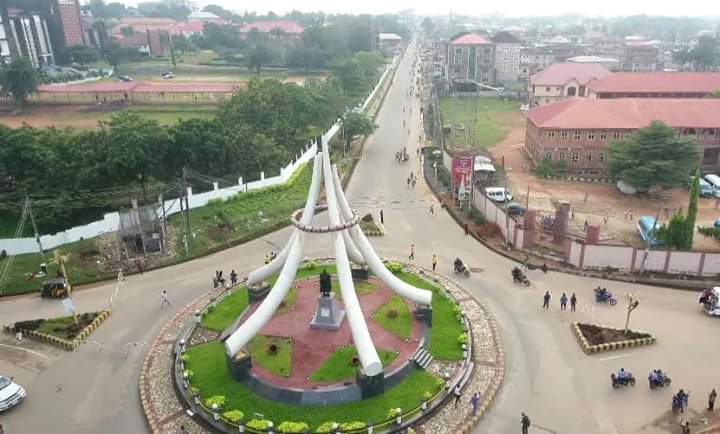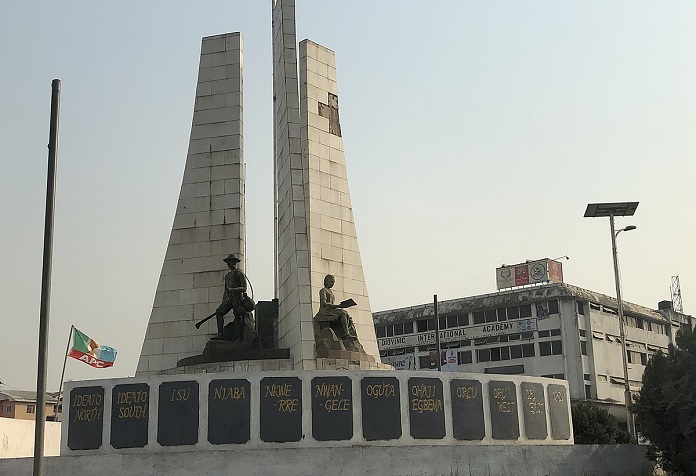The South East states in Nigeria are Abia, Anambra, Ebonyi, Enugu, and Imo. The region is dominated by the Igbo race and their dominant language is Igbo.
South East is one of the six geopolitical zones of Nigeria. The region has a population of about 36 million people, around 18% of the total population of the country, and it is bounded by the River Niger on the west, the riverine Niger Delta on the south, the Cross River on the east and the flat North Central to the north. The Southeast may be one of the smallest geopolitical zones in Nigeria, but it sure plays significant roles in the economic growth of the country due to oil and natural gas reserves along with a growing industrialized economy. To know more about the region, here are facts about each of the five states that make up the South East States in Nigeria.
States in South East Geopolitical Zone of Nigeria
There are five states that make up the South East geopolitical zone of Nigeria and they are
- Abia State
- Anambra State
- Ebonyi State
- Enugu State
- Imo State
Abia State
- Capital: Umuahia
- Tribes: Ngwa, Arochukwu
- Languages: Igbo, Ibibio
- Economic Activities: Oil & Gas, Agriculture
Abia State is a Southeastern state that is bordered to the north and northeast by Enugu, and Ebonyi State, Imo State to the west, Cross River State to the east, Akwa Ibom State to the southeast, and Rivers State to the south. It is the 32nd largest in area and 27th most populous state in Nigeria. Abia State was created on 27 August 1991, out of Imo state and it has 17 local governments, with Umuahia as its capital.
Abia state is mainly inhabited by the Igbo (Ibo) people and it’s one of the most densely populated areas in Nigeria. The Igbo people, who are one of the indigenous peoples of the South East states in Nigeria, make up 95% of the population. Their traditional language, Igbo, is in widespread use. However, English is also widely spoken and serves as the official language in governance and business. Ibibio is a minority language also spoken in the state, especially in Arochukwu.
Although Abia is the 5th smallest state in Nigeria in terms of landmass, its contribution to the country’s economy is massive, thanks to Crude oil and gas production which is a prominent activity in the area. The state produce 36,000 barrels of crude oil per day, and other raw materials you can find in the area are gold, Zinc, salt and limestone. Agriculture is another dominant economic sector in the state. They are known to produce yams, maize, potatoes, rice, cashews, plantains, taro, and cassava. Oil palm is the most important cash crop
Anambra State
- Capital: Awka
- Tribes: Igbo, Igala
- Languages: Igbo, Igala
- Economic Activities: Agriculture,
Tagged the “Light of the Nation”, Anambra State is one of the South East states in Nigeria. It was created in 1976, with its capital located at Enugu. However, on 21 August 1991, the city of Awka became Anambra state capital, after the creation of Anambra and Enugu state.
Anambra state is the most densely populated and the second most developed state in Nigeria after Lagos. It is also one of the most urbanized places in Nigeria with over 65% of people living in the cities. The state is majorly inhabited by the Igbo ethnic group, although there are a couple of other tribes, especially a handful of Igalas in the northern part of the state. Most of the population of Anambra State are widely known for their determination and great love for entrepreneurship. The state also has the highest literacy rate and the lowest poverty rate in Nigeria
There are twenty-one local government areas in Anambra state. Each of the local government areas contributes to the state’s economy. Anambra is rich in natural gas, crude oil, bauxite, and ceramic. The State also has agricultural resources, thanks to its agro-based activities, such as fisheries and farming, as well as land cultivated for pasturing and animal husbandry. Among the crops grown in the area are palms, maize, rice, yams, and cassavas. Fishing is also part of Anambra State’s economic mainstay, especially for communities along the riverine areas.
Ebonyi State
- Capital: Abakaliki
- Tribes: Ezaa, Afikpo, Izzi
- Languages: Afikpo, Afikpo, Izzi, Mbembe
- Economic Activities: Agriculture
Ebonyi state was created in1996 from parts of Abia and Enugu state, and it has its capital as Abakalili. Although it is one of the smallest and one of the youngest states in Nigeria, Ebony state is a leading producer of rice, yam, potatoes, maize, beans, and cassava in Nigeria. Rice and yams are predominantly cultivated in Edda, a region within the state.
You will find solid mineral resources in the state, including lead, zinc, limestone, crude oil, and natural gas. The state has the joint-twentieth highest Human Development Index in the country and numerous institutions of tertiary education. The state’s slogan is “the Salt of the Nation,” which was adopted because of the massive salt deposits at the Uburu and Okposi salt lakes.
Ebonyi is made up of twenty-two villages and thirteen local government areas, with Afikpo, Ishiagu, Uwana, and Abakaliki as its major cities. There are also ten primary languages spoken in the state: Afikpo, Mgbo, Izzi, Ezaa, Edda, Ikwo, Kukele, Legbo, Mbembe, Okposi, Uburu, and Oring. These languages are all subgroups of the Igbo language and are commonly spoken throughout southeastern Nigeria. Places like Abakaliki are mostly inhabited and populated by Igbo people from Abia, Enugu and Anambra.
Enugu State
- Capital: Enugu
- Tribes: Igbo, Igala, Idoma
- Languages: Igbo, English
- Economic Activities: Agriculture, Coal/Iron Ore mining
Enugu state is one of the Southeast states in Nigeria. It was created in 1991 from the old Anambra state, and it has its capital as Enugu meaning “top of the hill”. The name signifies the topography of the state. However, Enugu state is also called the “Coal City State” because of the abundance of coal minerals.
Aside from being the primary center for coal mining, Enugu is also home to Iron ore miners. The state also has limestone deposits, fine clay, marble, and silica sand. Among the Industries you will find in the area are textile manufacturing, food processing, lumbering, soft-drink bottling, brewing, and furniture manufacturing. Meanwhile, agriculture remains the key contributor to the state’s economy, with crops like yams, oil palm products, taro, corn (maize), rice, and cassava being among its primary products.
Enugu state has seventeen local government areas, and the Igbo people predominantly occupy it with minorities of Idoma and Igala peoples in Etteh Uno – a community in Igbo Eze North Local Government Area. The major cities in the state are Enugu, Agbani, Awgu, Udi, Oji-River, and Nsukka.
Imo State
- Capital: Owerri
- Tribes: Igbo
- Languages: Igbo
- Economic Activities: Agriculture, Oil & Gas
Imo state is one of the oldest states in Nigeria. It was created on 3 February 1976, and it is bordered to the north by Anambra State, Rivers State to the west and south, and Abia State to the east. Igbo people populate the State, and the language spoken is Igbo language.
It’s a bustling state with much to offer in culture, history, and business and investment opportunities. The State’s economy is highly dependent on agricultural production, especially palm oil, which most citizens rely on for cooking. There are also natural resources like crude oil, natural gas, lead, Calcium Carbonate, solar and wind power, and zinc in Imo state.
The prominent petroleum companies operating in the Imo State are Addax Petroleum, Chevron Corporation, Royal Dutch Shell, and Agip. However, the increasing violence that has continued to beset the State has dealt a great deal with its economy.




